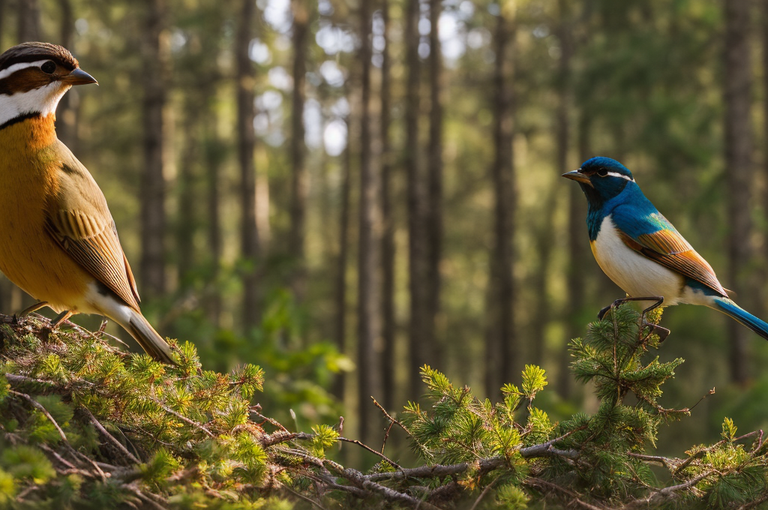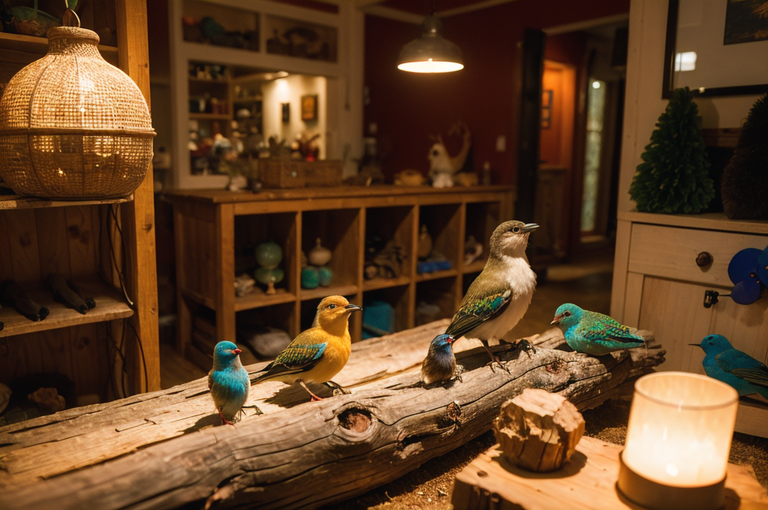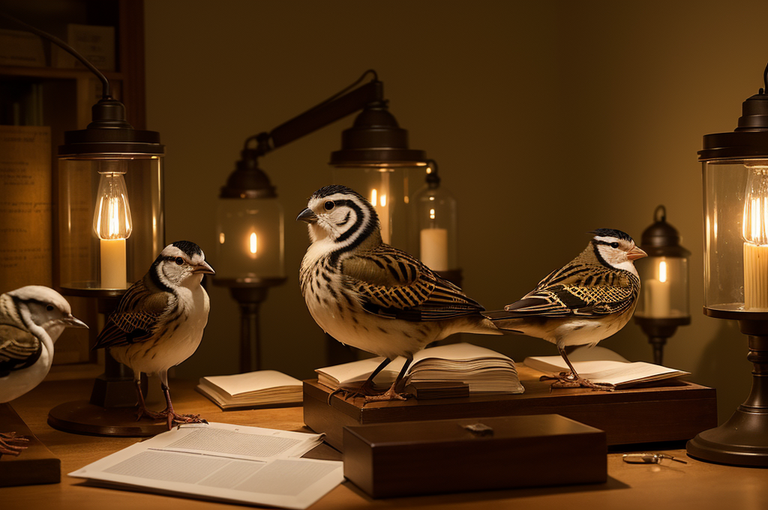Understanding Your Role in Wildlife Rescue: Handling Injured Wildlife and Liaising with the Right Authorities

Discover injured wildlife? Contact licensed rehabilitators or local wildlife authorities, not try to handle them yourself. Some states have restrictions on possessing wildlife and hotlines for reporting their distress. Some immediate care is advised while awaiting professional help.
Identification and Initial Steps upon Finding Injured or Orphaned Wildlife
Upon encountering injured or orphaned wildlife in the hushed anthems of the forest, my heart weighs heavy and my protective instincts as an ornithologist surge. One might wonder, can wild birds eat blueberries? A question that leads us to a wider conversation about how to assist these vulnerable creatures.
Approach towards Orphaned Wildlife
My Father, while nurturing my ardor for avian creatures, always insisted on a simple rule: ”Let nature be itself”. As it stands, we, as unlicensed individuals, should refrain from approaching or taking home orphaned wildlife. As much as your concern might call you to do so, our inexperienced hands might do more harm than good. It’s a bitter pill, but in the grand sonnets of nature, one we must swallow.
Approach towards Injured Wildlife
The sight of injured wildlife would undoubtedly disturb any heart. Yet, as heavy as the burden of responsibility feels, one must remember that swift and professional care is paramount. Certified wildlife rehabilitators or local wildlife authorities should be your first port of call. This isn’t a solitary odyssey, but a collaborative effort to safeguard our feathery friends.
Immediate Care Measures
When a winged beauty is injured, the initial care measures can make a world of difference. Placing the injured bird in a quiet, dark box could bring a soothing calmness. For unfeathered birds, managing their heat is an absolute must. Yet, these steps are by no means comprehensive, merely immediate responses for the bird to then receive professional care.
The dance of life in the wild is a blend of joy and pain, and as keen observers of these captivating creatures, we can, with careful, informed interventions, play a helpful role in this grand pas de deux.

Guidelines Regarding Wildlife Rehabilitation Licensing
Understanding the importance of possessing a license for wildlife rehabilitation is crucial to those who share my love for the avian world. It might sound official and boring, but I assure you, it’s as essential as those early morning cups of coffee for me. It is of prime importance because only licensed wildlife rehabilitators like myself are authorized to handle and care for injured or sick wildlife. This ensures that the beautiful creatures, like the wild birds in nyc, receive the highest standard of care.
Importance of possessing licensing for wildlife rehabilitation
When you obtain a wildlife rehabilitation license, you make a powerful statement. You affirm your commitment to safeguard the welfare of these magical creatures. In doing so, you greatly improve their chances of surviving and eventually soaring free again, back into their natural territories.
Legal implications of possessing wildlife
Now, let’s consider this from a legal perspective. Transporting, keeping, or caring for wild birds beyond the legal duration established by law can result in some serious legal implications. But with the right licensure under your belt, you’re safe from such repercussions. For the love of birds, it’s better to play by the rulebooks!
Exemptions in Wildlife Rehabilitation
Of course, there are some exceptions in the world of wildlife rehabilitation. Organizations like the Ohio Bird Sanctuary and the Florida FWC, for instance, exclude certain species from rehabilitation requirements. These exemptions can change the rehabilitation landscape, giving it a unique twist.
Understand, comprehensive knowledge regarding wildlife rehabilitation licensing is not just for the birds, it’s for you as a potentially responsible caretaker. After all, we are mere custodians of the avian world, a world that never ceases to amaze and inspire.

Appropriate Authorities to Contact
When faced with wildlife issues, such as the rescue of wild birds brooklyn or sorting out the intricacies of specific guidelines, it’s crucial to reach out to the correct wildlife agency or authority. 😊 A wide range of wildlife authorities can assist, from the Florida Wildlife Commission (FWC) to the Ohio Bird Sanctuary, or various Departments of Natural Resources across the country.
Identifying Suitable Wildlife Agency or Authorities
Determining the correct authority to contact could make all the difference. Depending on the geographical location and the creature involved, the appropriate agency might range from broad scale entities like the FWC or FWC Regional Office in Florida, or more localized facilities like the Ohio Bird Sanctuary.
The Role of Wildlife Hotlines
Perhaps one of the most undervalued assets during a wildlife emergency is a wildlife hotline. Their immediate accessibility makes them a vital first call, whether it be the FWC’s Wildlife Alert Hotline in Florida, the Sea Turtle Hotline, or the Southeast Region Stranding Network 24 hour hotline. These trained individuals can guide through the steps to take in critical situations or offer valuable advice on localized issues.
Specific Agencies for Specific Creatures
Often, there are specific agencies dedicated to preserving and nurturing certain species. For instance, in Florida, departments under the FWC have dedicated teams for manatees and panthers. So, in our adventures with nature, it’s fundamental to understand the correct channels to reach out, be it for beings like the majestic eagles of Alaska or the purple martins in our backyard.
Navigating through the intricate decisions that wildlife situations demand isn’t an easy flight, but we are not alone. There exists a league of vigilant watchers, aided by the wisdom of nature, ready to help at a call. Utilizing these resources correctly ensures a safer world for the creatures we adore so much. 🕊

Role of Local Communities and Non-governmental Bodies
Contribution of Local Communities
Just as a mother bird protects her brood, we humans find ourselves charmed, entranced and committed to safeguarding our feathered neighbors. The initial steps to preserving these wild birds bk begins at home, within our close knit communities. The role of citizens in this cause is paramount. We can transform our own backyards into bird friendly habitats, host bird watching events, and create awareness about the importance of avian species.
Involvement of Volunteer-based Wildlife Rehabilitators
The allure of dawn’s melody often leads many of us to adopt the role of amateur bird fanciers. However, some take it a step further, becoming hands on caretakers of these avian wonders, wild birds bk in need. Volunteer based wildlife rehabilitators play an instrumental role in assisting those birds that suffer as a result of human intervention or natural disasters.
Role of Societies like the Ogeechee Audubon in Savannah
As I delve into the heart of bird conservation, I find myself marvelling time and again at the work by societies like the Ogeechee Audubon in Savannah. This organization, much alike the wild birds bk they strive to protect, serves as a beacon for other bird enthusiasts. Combining expertise with sheer enthusiasm and passion, it feels as if these organizations take it upon themselves to diligently enforce their love for avian life in every possible way. They are the human counterparts to the attentive birds that rigorously defend their territories, acting as defenders of their feathered allies.
Structured like a murmuration of starlings individuals making up the whole will, together, make a significant difference in bird preservation. This is the humble beginning of a spirited flight towards avian protection, a flight guided by the magical rhythms of the wild birds we seek to guard.
Key Takeaways
In the heart of things, as we often glimpse wild birds in NYC darting amidst the concrete canyons or cooing in the charming corners of wild birds Brooklyn neighborhood, let’s remind ourselves of the bigger picture on interacting responsibly with these enchanting creatures.
Urgency to seek professional help
Our feathered friends, who may come to dine even on treats like blueberries, can often find themselves in predicaments that require immediate attention. We might wonder, can wild birds eat blueberries or such soft fruits? But rather than focusing on feeding them, let’s remember it’s pivotal to connect with professional aid at such times. The life of a wild bird might precisely depend on the swiftness of our actions.
Adherence to licensing laws
Moreover, let’s not forget the significance of respecting wildlife laws in the city. These rules aren’t arbitrary; they are thoughtfully constructed to allow our co existence. Maintaining a respectful distance from these animals is crucial to their survival, especially in urban spaces like wild birds Brooklyn or wild birds bk area.
Value of community efforts
Finally, a noteworthy aspect is the treasured fabric of community and local societies. Their active involvement and collective efforts play a crucial role in protecting and caring for local wildlife. These communal ties help foster a healthy environment for our avian neighbors, reflecting the community’s overall commitment to nature.
As we navigate this complex world brimming with birds and mysteries, let’s carry these takeaways close to our hearts. Ornithology isn’t meant to be a solitary journey. It’s about joining feathers with others, resonating with the magic birdcalls at dawn, and protecting these exuberant creatures, in ways that align with the legal and ethical guidelines. After all, the wealth of wild birds in our cities, and our backyards, is a community’s treasure to share and protect.


